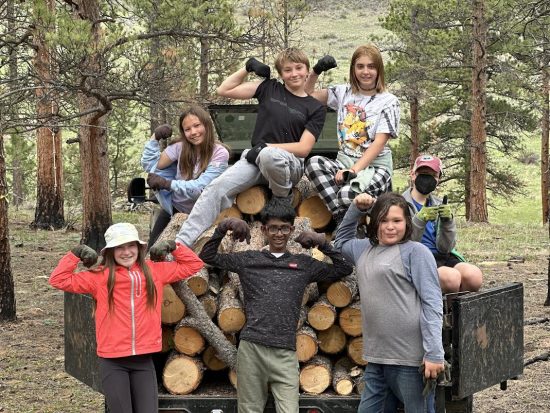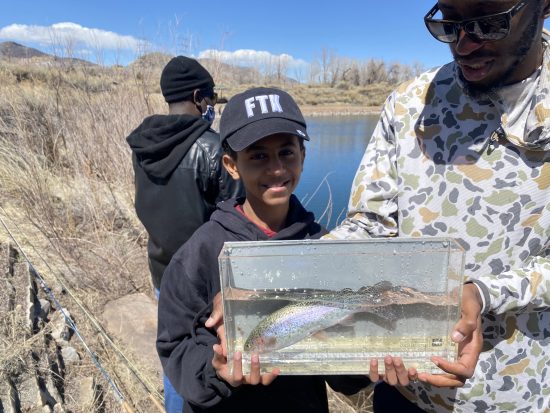Overview

The CAP Program is an award-winning elective class offered during the school day for academic credit. During CAP, students meet in class 3-5 days per week, challenge themselves on hikes and overnight camping trips, explore inspiring solutions to hyper-local environmental issues, choose an issue to address as a class, and collaborate with other local organizations to design and implement a student-directed Action Project to positively address their issue. CAP students have tackled wildfire mitigation projects, organized bike to school days, completed organic gardening and composting projects, created projects to help save native bees and pollinators, and more! Click here to read about recent stories from CAP.
Program Objectives
Through Environmental Education & Service Learning, CAP seeks to inspire students in middle or high school to:
- Ignite positive change in their local community through civic engagement and community involvement.
- Increase their environmental literacy through awareness of environmental stewardship and sustainability efforts.
- Develop essential camping and wilderness skills and provide an opportunity to develop leadership and teamwork skills.
- Develop 21st Century Skills such as: Critical Thinking, Problem Solving, Collaboration, Communication, and Leadership.
Recent Action Projects:
- Alternative Protein (Eating Crickets), STRIVE Preparatory Schools Sunnyside Campus and Angevine Middle School: students shared recipes and provided a food tasting for their schools using crickets as an alternative protein. Both classes were interested in finding non-meat proteins as alternatives for healthy eating.
- Wildfire Mitigation, Centaurus High School: students met with wildland forest firefighters to learn about training and equipment to fight forest fires. The class also did two rounds of fire mitigation work at Calwood Education Center where they completed their overnight camping trips.
- No Idle Zone, KIPP Sunshine Peak Academy: CAP students decided to take action after noticing all the idling cars in their school pick-up line. Concerned about air quality, they talked with parents in the line, had petitions signed, made stickers and buttons to promote the more sustainable step of turning off your car while waiting in line to pick up students.
Award Winning Curriculum

The CAP curriculum reinforces many Colorado academic standards, including:
- SC10-GR.8-S.2-GLE.1 (Human activities can deliberately or inadvertently alter ecosystems and their resiliency.)
- PE09-GR.HS-S.3-GLE.2 (Demonstrate collaboration, cooperation, and leadership skills.)
- SS09-GR.HS-S.4-GLE.1 (Research, formulate positions, and engage in appropriate civic participation to address local, state, or national issues or policies.)
Cottonwood Institute’s curriculum is informed by the E Movement Guidelines, which lay out an age-appropriate, whole-child approach to environmental education. The E Movement is a community-wide effort to provide youth with the knowledge, care, skills, and connection to place required to become stewards of the environment. To learn more, and to learn how your school or organization can become a part of the E Movement, click here.
Best practices in environmental education, emphasizing: Awareness, Knowledge, Critical thinking, Problem solving, Decision-making, Action, and Stewardship.
Best practices in service learning, inspiring students to: Explore the community, Identify local issues, Select an issue, Research and understand the issue, Collaborate with the community, Create a sustainable solution, Plan and implement Action Project, and Evaluate, reflect, and celebrate!
For more information or to book a program, contact Teagan Papke, Program Director, at 303.447.1076 x701 or via Email.
